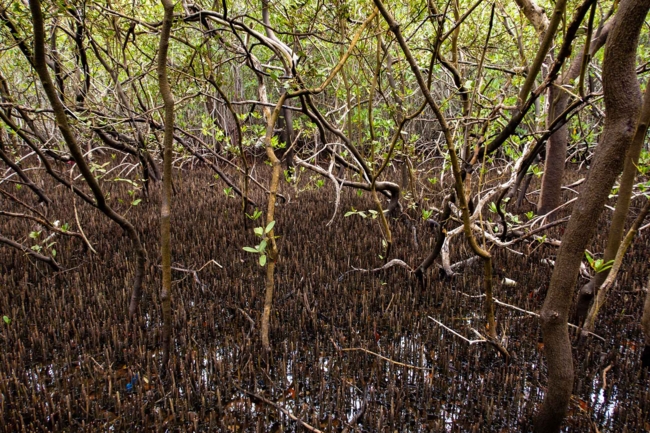02/02/2023 | A large-scale international media investigation recently called into question the practice of carbon offsetting employed by many international companies. In this context the world’s leading organisation for approving carbon offset projects came under great scrutiny as UK newspaper The Guardian and renowned German weekly Die Zeit in cooperation with non-profit journalism organization Source Material reported that more than 90% of rainforest carbon offsets by the biggest provider Verra to be worthless. Verra has disputed the reports in an online statement.
While “blue carbon” experts at the Leibniz Centre for Tropical Marine Research (ZMT) welcome the investigation and acknowledge the reported flaws in the carbon offsetting system, they also point to the large number of scientifically supported projects that are meaningful and important for climate protection and should continue to be supported. They understand the pressure coming from industrial climate policy actors and add two messages: proper scientific assessments, sound standards, and independent verification schemes will be needed along with assessments of co-benefits for livelihoods of coastal communities.
Martin Zimmer, mangrove ecologist at ZMT, says: “Many years of research have shown that considerable amounts of CO2 can be stored in coastal ecosystems in the short and long term.” Mangrove ecosystems, which researchers at ZMT have been studying since 1995, play a significant role in this context.
“In many places, mangrove forests and other coastal ecosystems store a lot more CO2 in their sediments than the majority of terrestrial ecosystems”, says Zimmer. “A single mangrove tree is able to remove up to 4 tonnes of CO2 from the atmosphere within 25 years and store it in its biomass, depending on the species and the environmental conditions.”
Tim Jennerjahn, biogeochemist at ZMT, says: “An even much larger amount is deposited in the sediment where it remains stable for centuries or even millennia, as long as the mangrove ecosystem remains largely undisturbed.”
Besides the widely discussed contribution of coastal ecosystems to climate change mitigation and adaptation, mangrove forests (and other coastal ecosystems) also provide numerous important and valuable ecosystem services, such as preventing coastal erosion or producing natural resources (for example crabs and timber).
ZMT researcher Véronique Helfer emphasizes the potential for mangrove (re-)establishment: “Since the industrial Revolution, more than half of the world's mangrove forests have been destroyed. Of these degraded areas, about 800,000 hectares would be available for reforestation.” She calls for mangrove (re-)establishment projects to always involve local communities, thereby creating job opportunities and contributing to local communities’ well-being. “To ensure reliable carbon credits accounting and fair benefit-sharing from those projects, we need to developed new standards that include repeated accurate quantification through regular monitoring,” Helfer says. Sales of carbon credits on the global carbon market are considered an important source of funding for such conservation and reforestation projects.
ZMT economists Raimund Bleischwitz and Achim Schlüter argue that mangrove reforestation programmes are seen as beneficial. For instance, the High Level Panel for a Sustainable Ocean Economy estimates a benefit-cost ratio of 3:1. “Economic gains should be shared equally between all groups involved, especially taking into account local population groups, with dividends for coastal communities and public investments into social capital. The Natural Resource Charter offers useful principles in such direction.”
ZMT researchers to evaluate mangrove reforestation and conservation programmes worldwide
The Leibniz Centre for Tropical Marine Research (ZMT) – in cooperation with the start-up fairGROVE, which emerged from ZMT – has set itself the task of evaluating and supporting mangrove reforestation, afforestation and conservation programmes worldwide on a scientific basis. They plan to assist local NGOs with project development, operation and sustainable marketing. Certificates for these projects to compensate for CO2 emissions must be based on science and reliable data.
Martin Zimmer says: “To this end, the entire nature of CO2 certification must be professionalised and standardised with the help of multidisciplinary scientific initiatives: Proof and qualification of the quantities of CO2 actually stored per certificate and project type, as well as recording and quantification of the respective additional benefits and services.”





